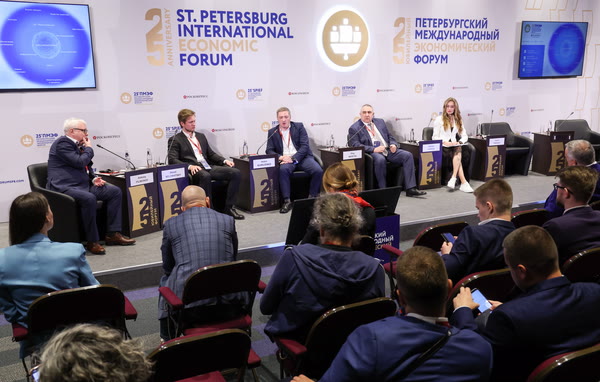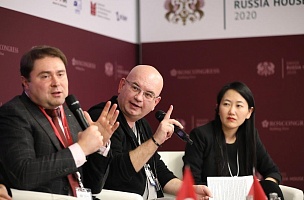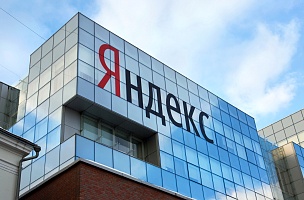Key conclusions
Russian companies do not need to import everything. They need to identify critically needed technologies and analyze economic efficiency, patent potential, and prospects
“First of all, we need to identify critical technologies, what we really have to replace, and what is effective in the longer term. [...] We don't really need to import everything – it's impossible. Unfortunately, our market does not assume such economic efficiency of this activity. We will simply disperse and won’t create anything eventually. We must identify critical technologies, otherwise we may be hit technologically,” Alexei Beloshitsky, Executive Director, Competence Center of NTI in the Field of "Technologies for storage and analysis of big data", Lomonosov Moscow State University.
“It is necessary to deeply analyze not only technological needs companies have now but also much lower levels, that is, what will be needed in the near future from what is now being replenished by importing technological players of Western countries. It is necessary to understand how far our solutions are behind needs of large companies and by what mechanisms they can be increased,” Natalya Popova, First Deputy General Director, Innopraktika.
“It is very important [...] to maintain a certain balance. On the one hand, we have to solve tasks that will clearly ensure our security in the field of import substitution, so that we won’t face shortage of vital drugs. [...] Entering international markets for innovative drugs is the only opportunity to recoup what will be invested in them,” Vadim Tarasov, Director, Institute of Translational Medicine and Biotechnology Institute of Translational Medicine and Biotechnology, First Moscow State Medical University named after I.M. Sechenov.
“Companies that have made their way through the creation of technological products but not through the implementation are actually somewhere in the middle, or even in the first half of their work. At the second stage, when the technology is created, it is necessary to work out a huge number of issues related to creating a cost-effective model for companies that work with you as partners and for customers of your technology. It is necessary to correctly formulate and select the terms of contracts not only implying, among other things, the operation of what has already been created but also allowing you to develop your product. [...] Any technology that has stopped today will most likely become ineffective in six months, and it will simply be inapplicable in life in three years,” Anton Kurylenko, General Director, Gazprom CPS.
PROBLEMS
Lack of consolidated demand for a number of import substitution projects does not let them become economically profitable
“There are projects that [...] need to be run at the industry level in terms of demand. Here is, for example, a project of the hydraulic fracturing fleet. <...> Today, probably 90–95% of equipment is imported, pretty much all the imported equipment is American. There are currently about 110 fleets in operation in Russia, about 25 of them are operated by Gazprom Neft. Hence, the challenge we have set is to replace at least 80% of the component base with products of Russian manufacturers. We have attracted a number of companies of the military-industrial complex. [...] We need broader and sector-specific demand. [...] Therefore, the consolidated demand is the question (or the challenge) we need to answer,” Alexey Vashkevich, Director of the Directorate for Technological Development, Gazprom Neft.
“Based on the fact that we need competitive and economically efficient solutions, we really need such an independent integrator,” Natalya Popova, First Deputy General Director, Innopraktika.
SOLUTIONS
Creating of an integrator for consolidation of demand for import substitution products
“The main challenge is certainly industry projects. The role that [...] should be formed in the near future is the role of an integrator or a consolidator of demand at the industry level, and, perhaps, in a cross-industry format. It is clear that quite a lot of sites are being formed today, these sites largely duplicate each other,” Alexey Vashkevich, Director of the Directorate for Technological Development, Gazprom Neft.
“Despite the fact that integration became the cornerstone after the events of 24 February, in practice we have been dealing with this topic since 2017. Because the National Association for Technology Transfer was established in 2017. [...] Together with the Federal Institute of Industrial Property [subordinate organization of the Federal Service for Intellectual Property — Ed.]. We have already begun to consolidate major players on the one side, scientific platforms on the other side, and medium and small businesses on the third side. [...] In 2018, we created an engineering centre. This centre is exactly about consolidating the demand of major players and developing technological solutions specifically for the secured demand. [...] An independent integrator can be created by the state, it may be not a state integrator in direct subordination and use state support mechanisms at the same time,” Natalia Popova, First Deputy General Director of Innopraktika.
Russian manufacturers can rely on the analysis of existing world developments in import substitution helping them address possible in the longer-term traps
“We need such a clear analysis of directions in each technology that will lead us forward. [...] It is impossible to start developing everything from scratch in order to run down and outrun everyone and replace everything. We must build on what is already in the world, strive to make our own, make it better, and make it in different ways,” Oleg Neretin, Director, Federal Institute of Industrial Property.
“When talking about import substitution, we probably need to talk about three traps here. [...] The first trap is the West and parallel imports: our Western partners primarily focusing on economic efficiency [...] will try to find interaction one way or another. This is a trap for us because we hope we will find ways to interact, and everything will be as before. [...] Most likely this will not happen. [...] The second problem is our Asian partners and a new addiction. [...] And there is the third trap, a combination of the first and the second ones: we try to use parallel imports when in some cases and we rely on our Asian partners in other cases. [...] These models are incompatible for our long-term sovereignty and for our economic security,” Alexei Beloshitsky, Executive Director, Competence Center of NTI in the Field of "Technologies for storage and analysis of big data", Lomonosov Moscow State University.
For more information, visit the Roscongress Foundation’s Information and Analytical System at roscongress.org/en






